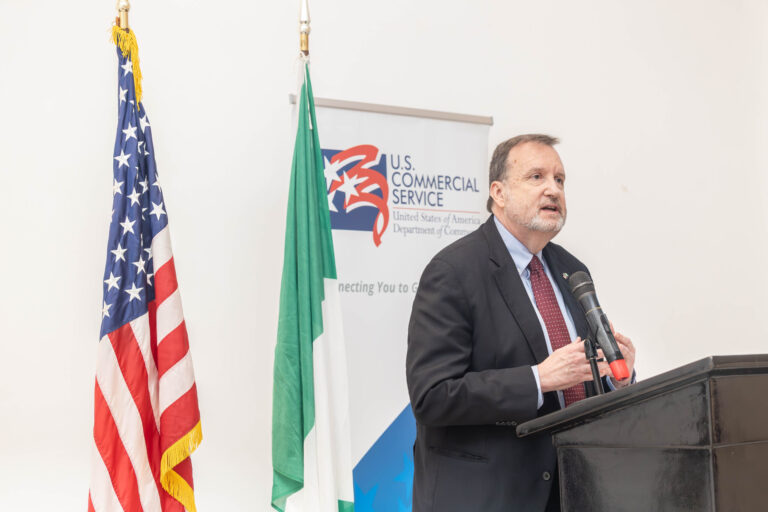Abuja, Nigeria – Senior government officials and business leaders from the United States and Nigeria have formally inaugurated the working group meetings of the United States–Nigeria Commercial and Investment Partnership (CIP), marking a new chapter in economic collaboration between the two countries.
The launch event, held in Abuja, follows the signing of a five-year Memorandum of Understanding (MoU) in July 2024 by U.S. Secretary of Commerce Gina Raimondo and Nigeria’s former Minister of Industry, Trade, and Investment. The CIP is designed to strengthen commercial engagement and unlock mutual opportunities in key economic sectors.
Leading the inaugural session were Ambassador Richard Mills, U.S. Ambassador to Nigeria; Julie LeBlanc, Senior Commercial Officer, U.S. Department of Commerce; Dr. Jumoke Oduwole, Nigeria’s Minister of Industry, Trade, and Investment; and Ambassador Nura Rimi, Permanent Secretary of the same ministry.
Ambassador Mills highlighted the significance of the initiative, stating, “The CIP is a cornerstone of my diplomatic mission in Nigeria. I am proud to witness the start of these working group sessions, which reflect the United States’ deep commitment to enhancing our trade and investment ties and ensuring both nations prosper through shared growth.”
Key Focus Areas: Agriculture, Infrastructure, and the Digital Economy
The working group meetings focused on three strategic sectors: agriculture, digital economy, and infrastructure. Comprising members from both nations’ private sectors, each group nominated leadership and began identifying key non-tariff barriers and investment constraints hindering business expansion.
The goal of the initiative is to accelerate job creation, increase private sector engagement, and develop actionable policy recommendations that address core challenges across these sectors.
Thomas Bruns, U.S. Deputy Assistant Secretary for the Middle East and Africa, noted the significance of the initiative in driving innovation and economic inclusivity. “This Partnership demonstrates the shared resolve of the United States and Nigeria to deepen economic ties. Through collaboration in high-impact areas like infrastructure and digital transformation, we can promote sustainable prosperity and unlock long-term value for both countries,” he said.
Bruns also emphasized the role of the U.S. Department of Commerce’s International Trade Administration in representing American business interests and facilitating meaningful international partnerships.
Forward-Looking Collaboration
The CIP’s governance framework includes a biannual review process, during which both nations will assess progress and identify emerging sectors for collaboration. The next formal CIP meeting is scheduled for Fall 2025.
This launch signals a shift from rhetoric to action, with both governments committing to a results-driven agenda that fosters innovation, economic resilience, and cross-border investment. By addressing trade barriers and aligning policy with business realities, the Partnership aims to position Nigeria and the United States as co-leaders in Africa’s evolving economic landscape.

